Christina S. Murrey and M. Yvonne Taylor
April 21, 2020
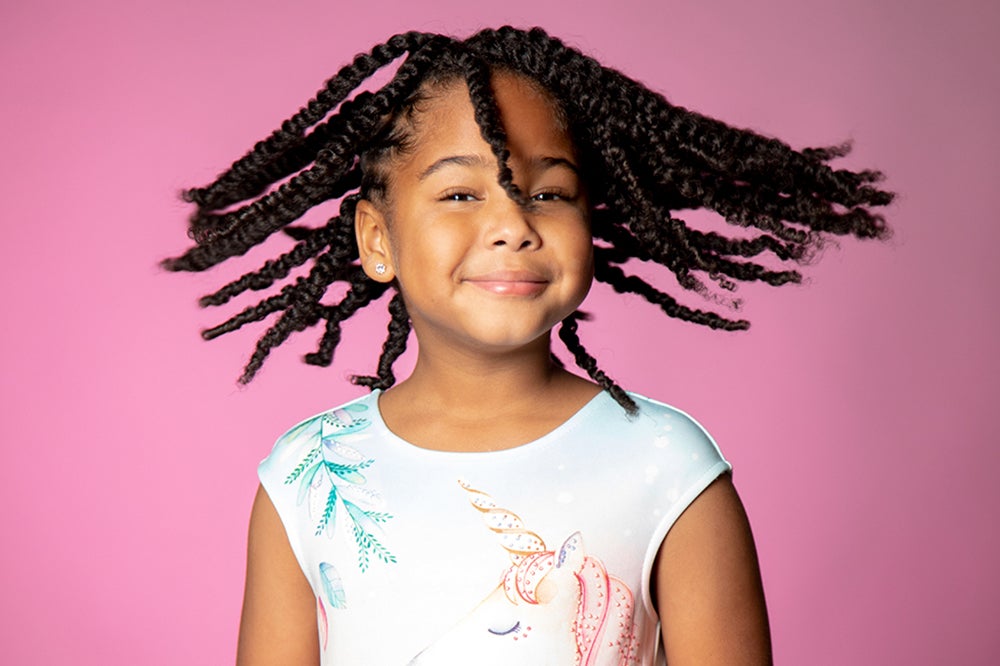
In the United States, Black people’s hair has been a source of contention, punishment, and immense pride. For years, in an attempt to conform to Eurocentric standards of beauty and professionalism, Black women have sought to straighten their natural kinks and curls. In fact, according to a recent survey by Dove, Black women are 80% more likely to modify their hair in response to workplace norms. This intense focus on taming ‘unruly’ hair is, in large part, how Black haircare mogul Madam C.J. Walker became the first self-made American woman millionaire in the early 1900s.
In the 1960s and ’70s, Black people began to rebel against this pressure to conform, and bold natural hairstyles like afros and cornrows became popular. Yet in the year 2020, schools and employers continue to police Black hair. Last year, California became the first state to pass legislation banning employer and school discrimination against Black children and adults who wear their hair in natural styles, and several other states have followed their lead.
In this photo essay, several faculty, students, and staff members share their thoughts, feelings, and experiences of their natural hair journey.
Photos by Christina S. Murrey, Editorial by M. Yvonne Taylor

Wearing my hair in its natural state has allowed it to truly flourish and be as beautiful as it was intended to be. When we break free from historical and contemporary narratives about what counts as beauty, we’re able to present compelling images of the beauty of Black women, created just as we are. My hair is now one of my most self-loved features, and I can tell from others’ responses to it—people from all races, cultures, and backgrounds—that they appreciate being educated about the beauty of Black hair and Black women.
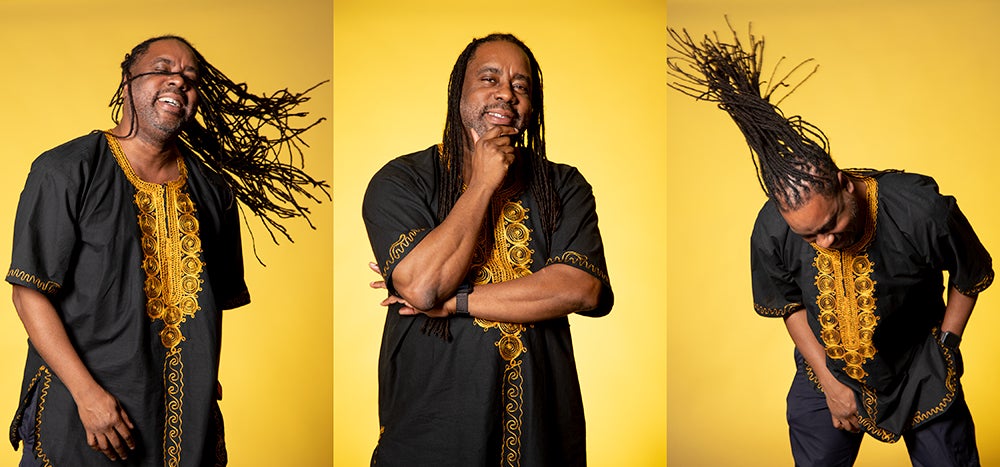
I have grown locs twice, the first time when I was a new professional in student affairs in California. Locs are family common now, but in the late 1990s they were fairly unique. Not only that, there are a lot of misconceptions about locs—some people think you can’t wash them (false), or it means that you’re a Rastafarian (false), or that you smoke weed (???). So when I started growing locs, the director of housing at Cal Poly (where I worked) was a Black man, Preston Allen. Preston was great to talk to about what challenges I might face. Essentially, he told me that as a Black man in the field, I was going to navigate racism and ignorance in my career regardless—so I might as well be comfortable and express myself. I also had very supportive supervisors—White women—who appreciated the cultural expression. So by the time my hair became loc’ed, I had been in a fairly progressive work environment—people had always known me as someone with locs. When I went to grad school, I had locs until towards the end of my doctorate. I just cut them because it was time-consuming to manage, so when I started at UT in 2007 I had a natural (afro).
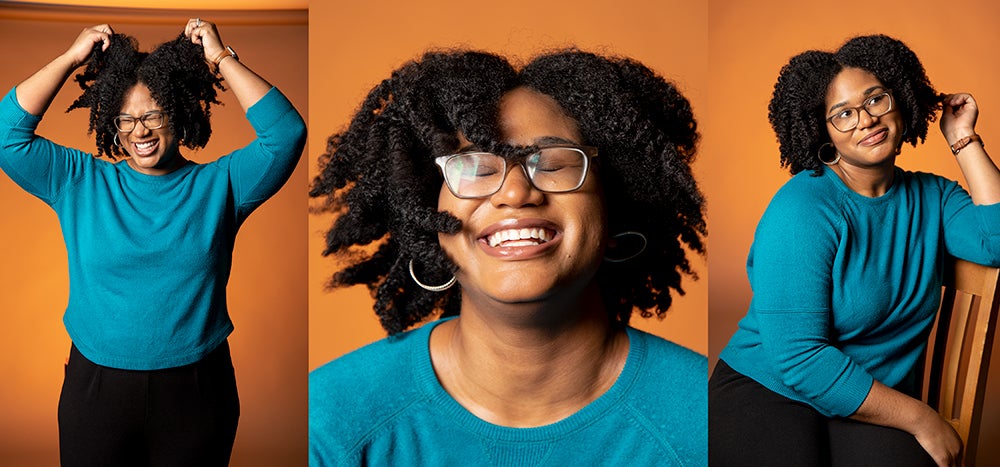
When I first decided to grow wear my hair naturally (in college), I received lots of questions, side-eyes, and pushback from older people in my community. They were concerned that I wouldn’t be viewed as professional if I wore my hair in a curly fro, and were often concerned about what I was going to ‘do’ with my hair. Initially, out of fear of rejection, I would attempt sleeker hairstyles when interviewing for jobs, hoping to keep my natural hair inconspicuous. But, as I age and continue to grow more comfortable and confident in myself, I recognize that my hairstyle has no bearing on my ability to do the work. And truly, if a potential employer has an issue with my hair, that institution really is not going to be a good fit for me. So I embrace my hair, and now use it as kind of a litmus test.
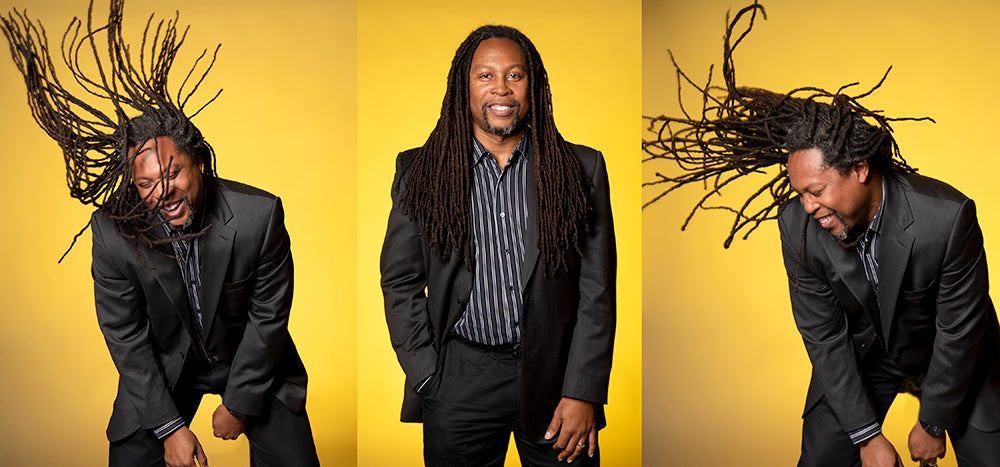
The first message actually came from my mother. She was concerned about how my colleagues (white folks) would respond to me being a new professor. She asked me if I was ‘allowed’ to wear my hair that way. For additional context, when you start locs you go through a period of looking ‘rough,’ with little twists on your hair that refuse to lie down neatly! I have often wondered how far I can advance professionally wearing locs. I hope that my professional accomplishments, rather than my looks, will be the ultimate determinant of my professional advancements.
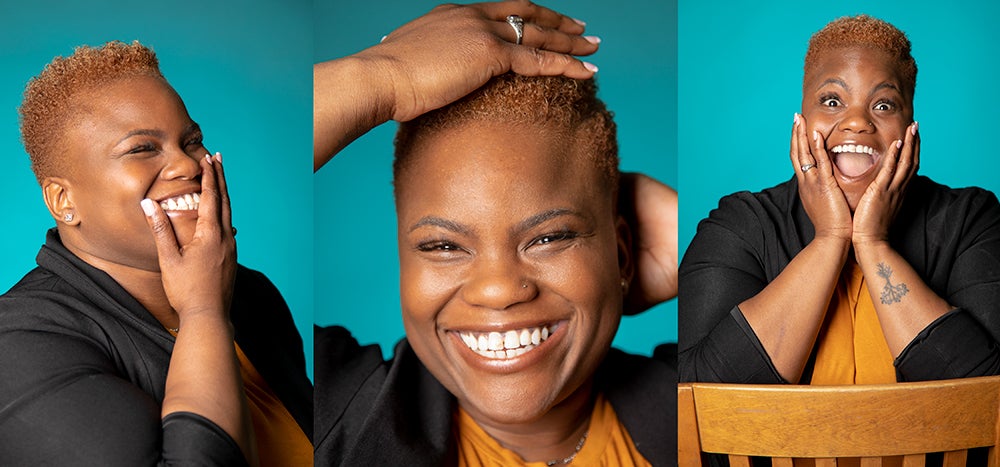
[Wearing my natural hair] means being free to express myself on my own terms. I never received the message that wearing my hair natural would be a risk or unprofessional because it has always been a conversation in Black women groups I’ve been a part of that challenge such narrative. It makes me feel free and powerful because it is a signal of me standing in my Black womanness!
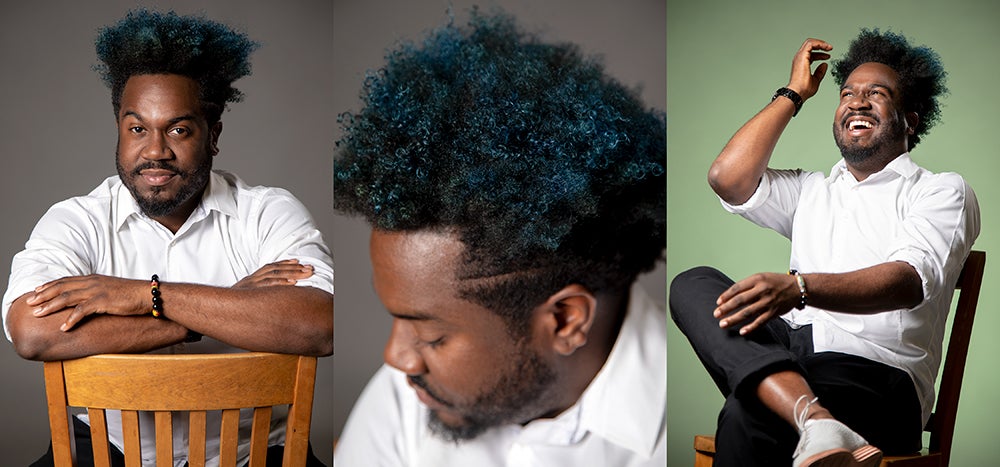
No one has never outright told me that it was unprofessional, but often I get looks of disapproval and curiosity. My hair or hair color doesn’t dictate how I support students on campus. It’s good to show our ‘human’ side with the students we interact with because many of them, particularly students of color, need to know that there is no singular look to professionalism. During undergrad, I recall seeing an older white woman who used to work in the Main Building with really long salt and pepper hair but would always have highlighted tips – hot pink, orange, neon green. I made the assumption that she was someone with power and thought, ‘Well if she can do it, I can do it too!’ It feels great to have fun with my hair and let it grow into its own thing. I get to watch it cooperate when it wants to and have a mind of its own. It’s wild to see what a bonnet or a satin pillowcase will do.

Going natural was a political and personal choice that took me two tries, and a few years to fully embrace. I believed there was something deeply wrong with a society that denigrated and didn’t allow people to wear the hair they were born with. Realizing this in college made me think deeply about how I could reclaim that part of my identity that had literally been hidden underneath the chemically processed hair I had worn for a good part of my life. I also believed that the only way I could express love of myself, other Black women and girls who had curly hair like mine, and any future children I might have, was to love and embrace the hair I was given, regardless of what society or others might think.
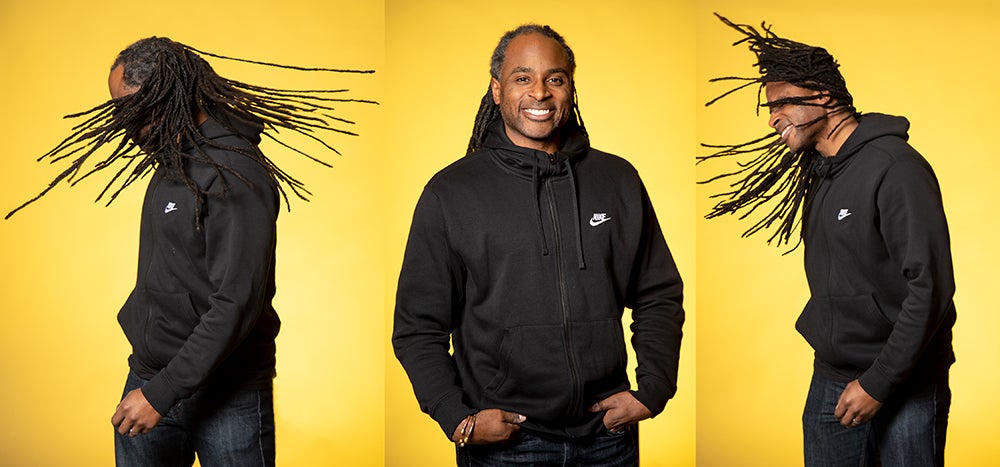
I started loc’ing my hair in 2002. I did it because I always loved locs and because it was an outward representation of an inward transformation that I was going through with my faith. Wearing my locs means that I can express myself the way I want to with my hair. When I first started loc’ing my hair people told me not to do it, or to think twice about it because it was not ‘professional.’ But I honestly never really listened to that advice and did what I thought was best with my hair.

I decided to wear my hair naturally almost three years ago. My natural hair anniversary is March 4, 2017. That was a time of new-found independence for me. Although, I never know exactly how my hair will behave from one day to the next, wearing it naturally gives me a sense of autonomy that I never had when I straightened my hair. It represents an acceptance of myself and my heritage that I didn’t even know I was trying to suppress in order to be whatever I thought I was supposed to be. One of the reasons I finally decided to go natural was because I felt secure enough in my job after being there for 2 years. Seeing other black folks rock their curls and locs in the professional settings gave me to confidence to try it. I subconsciously felt that I had to prove myself in that ‘world’ before diverting from the norm. Even a few months ago, before I joined UT and was interviewing at various places, I seriously considered straightening or altering my hair for interviews. I’m glad I didn’t!

Reddick: When I see someone who has locs or natural hair, it’s like we have an unspoken connection. Usually, someone with a natural hairstyle has gone through a process and journey about their identity, which is always fascinating and a bond we often share.
Cokley: I am very proud to wear locs. I think it is especially important for Black students to see professors embracing locs and other natural hairstyles.
Green: I love wearing my hair in locs. When I wear my hair like this it makes me feel connected to my Black roots and it is a form of resistance against traditional notions of what so-called ‘good hair’ is supposed to look like because I know I have ‘good hair.’

I started wearing my hair in its natural state in 1996, when I did ‘the big chop,’ which is cutting off the longer relaxed or straightened hair to let the natural kinks and curls sprout from the scalp unbothered. In 2001, I began loc’ing my hair and I had locs for seven years. They grew down to my backside. In 2008, I did another big chop and have worn the kinks and curls in various lengths ever since. Prior to cutting the relaxer from my hair, I literally had no idea what its actual texture was, which is wild.
To learn more about the policing of Black hair and the Crown Act, read Professor and Associate Dean of Equity, Community Engagement, and Outreach Richard Reddick’s opinion piece.

